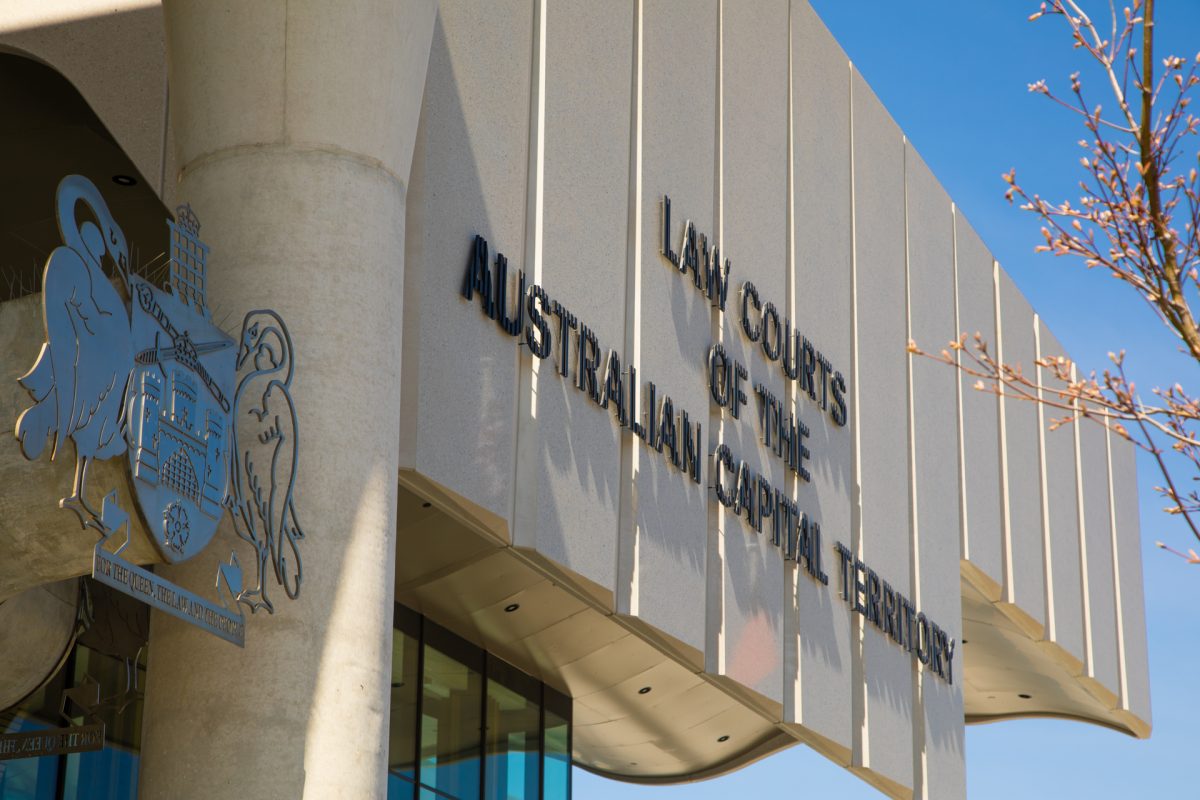
Out of the 76 sexual offence matters completed in the 2022-2023 financial year in ACT Courts, 49 were proved. Photo: Michelle Kroll.
CONTENT WARNING: This article refers to sexual offences.
The ACT’s highest number of referrals for the prosecution of sexual offence allegations was recorded in the last financial year.
The referrals were from police to the ACT Office of the Director of Public Prosecutions (DPP), the DPP’s annual report for 2022-2023 says.
During this period, 103 sexual assault prosecutions began in the ACT Magistrates Court and 58 such matters started in the Supreme Court, up from 88 and 25, respectively, from the previous financial year.
Meanwhile, ACT Policing’s report for the same period showed the number of reported allegations of sexual offences rose 8.8 per cent to 633 cases.
Out of the 76 sexual offence matters completed in the 2022-2023 financial year in the ACT Children’s, Magistrates and Supreme Courts, 49 of them were proved.
There were 20 sexual offence trials, resulting in nine guilty verdicts and four not guilty verdicts, while seven fell into a category the report labelled “other”.
Prosecutors had started using the new affirmative consent laws introduced last May, Acting Director of Public Prosecutions Anthony Williamson SC said.
“The impact of the new law has been immediate, with it having a material effect on the way in which a prosecution’s ‘reasonable prospects’ test is applied to sexual offence matters,” he said.
He said these new laws abolished the ‘Morgan defence’, in which an accused would be acquitted if it was accepted they honestly and genuinely, albeit unreasonably, believed the complainant was consenting.
The first Supreme Court trial involving the new affirmative consent laws concluded in August 2023.
Mr Williamson also said there had been seven separate murder cases involving eight people charged with murder over the last financial year.
Four pleaded guilty, one was found guilty and another received a verdict of not guilty by reason of mental impairment, while two are awaiting trials in 2024.
Prosecutors ran 43 Supreme Court trials in the 2022-2023 financial year, consuming 305 days, while 25 trials had taken 151 days in the previous financial year.
“While slightly fewer family violence matters were commenced in the last reporting period (7 per cent), the number of family violence matters completed significantly increased by 143 matters, representing an increase of 29 per cent,” Mr Williamson said.
He acknowledged Detective Sergeant Christopher Watson and the other detectives who helped arrest five people over the shooting of Glenn Walewicz.
“Detective Sergeant Watson and his team engaged in a meticulous investigation during which they narrowed a list of potential suspects by reviewing thousands of pages of mobile phone tower data,” he said.
“From there, they obtained telecommunication interception and surveillance device warrants, which lead to the execution of multiple search warrants on residential premises.”
Gary Taylor and the 17-year-old shooter pleaded guilty to murder. The latter and the crime’s architect, Nicole Williams, await sentencing.
The report listed some of the other noteworthy cases that had been dealt with in the financial year as well.
Shay Murphy was handed 14 years’ jail for abusing four of his partners, Stephen Mitchell was given 13 years’ jail for abusing six children, Michael O’Connell was found guilty of murdering Danielle Jordan, while Sugimatatihuna Mena was sentenced to nearly 10 years’ jail for attempted murder, although the latter three have all launched appeals.
Mr Williamson also said it would be remiss of him not to say something about the effect the Board of Inquiry into the Criminal Justice System had on the DPP.
“The inquiry has generated intense media interest which has put the operations of the DPP under the spotlight, being a matter not lost on staff within the office,” he said.
“I am incredibly proud of the way in which all staff have continued to operate in a highly professional and diligent manner during what has been a difficult time.”
The inquiry saw the resignation of Shane Drumgold SC from his role as DPP, but he has since launched legal action against the inquiry that is scheduled to be heard next year.
If you or someone you know needs help, contact 1800RESPECT, the national domestic and sexual violence support service, by calling 1800 737 732.





















You have to hand it to the ACT Government. They seem to be very good at erecting shiny new… View